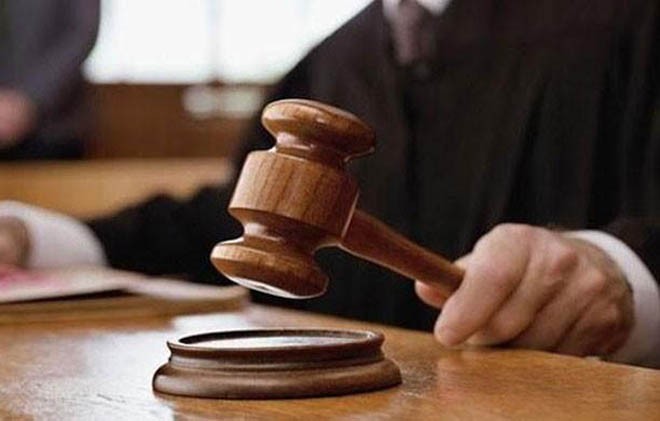
The Panama verdict hardly speaks of improving accountability mechanism of the ruling elite

The Panama Papers exposed offshore companies of wealthy people in different parts of the world. Since then, the scandal has shaken many governments, triggered probes and created debates about money laundering, tax havens, transparency and accountability.
The Supreme Court (SC) took up the writ petitions of different political groups and individuals against offshore companies, mainly targeting Prime Minister Nawaz Sharif and his family whose names appeared in the Leaks for owning properties in London through offshore companies.
The SC took up the matter after the main opposition party -- Pakistan Tehreek-i-Insaf -- announced that it would shut down Islamabad to hold the PM and his family accountable. The SC started hearing the case in December 2016 and concluded it on February 23, 2017. After a delay of 57 days, it announced the judgment on April 20, 2017. However, the 549 pages with a note of dissent, hardly talk of a broader mechanism to ensure accountability and transparency, and stop tax evasion, especially, by the ruling elite.
The judgment, with 13 questions to be asked from the prime minister and his family through a Joint Investigation Team (JIT), strictly focuses on the ruling family, rather than defining a mechanism to improve the accountability system to get hold of the ruling class.
During the court proceedings five judges hearing the Panama petition hinted at addressing the issue of accountability, accountability institutions taking action against tax cheats or money launderers. However, at best, the verdict questions functioning of the accountability institutions, and terms them partisan and politicised.
"Yes officers at the peak of NAB and Federal Investigation Agency may not cast their prying eyes on the misdeeds and lay their arresting hands on the shoulders of the elites on account of their being amenable to the influence of the latter or because of their being beholden to the persons calling the shots in the matters of their appointment, posting and transfer," the judgment reads.
"There is no broader guideline or any roadmap given in the judgment to ensure accountability in such cases," says Syed Ali Zafar, former President of Supreme Court Bar Association. "We were expecting a guideline. But the judgment focused only on the presentation of evidence and defence of the accused party."
He thinks there was enough room for setting a broader mechanism of accountability of the ruling class because "top judges were dealing with the case and understood it well. If this case is concluded in a fair way, a precedent will be set to hold the people accountable."
"The judgment offers a rather unhappy ending. The bench heard a case in detail but the conclusion it reached has raised questions instead of answer. The verdict is inconclusive," says Umar Cheema, senior journalist and a part of the ICIJ team, investigating Pakistani part of Panama Papers.
Read also: Editorial
"The JIT will largely draw representation from institutions which failed to inspire the confidence of the judges, let alone the public at large. We expected that the bench will evolve a credible probe mechanism to hold the ruling elite accountable. This didn’t happen," he says.
He holds that the questions that the Sharif family failed to answer before the high-powered bench will now be asked by the officers of institutions having a history of acting at whims and wishes of the rulers.
"Instead of the JIT, the court should have formed an independent commission headed by a person with expertise in white-collar crime. The family of prime minister should have been asked to give consent in writing, allowing the investigators to acquire record from the British Virgin Islands where the companies are registered," he adds.
Obtaining the record is otherwise not possible in the absence of any information exchange agreement with the offshore jurisdiction. "The commission could also have been equipped with the resources to engage investigators of choice and conduct the forensic examination of the record," he concludes.
In a 2016 report, Assessment of the quality of democracy in Pakistan launched after the Panama Leaks, Pakistan Institute of Legislative Development and Transparency (PILDAT) particularly highlighted the subject of accountability. The section ‘Panama Leaks and Weakening Accountability Structures in Pakistan’ reads: "More than anything, the emergence of the ‘Panama Leaks’ and the subsequent maelstrom over the issue highlights the weakness of Pakistan’s accountability institutions, especially the National Accountability Bureau (NAB), the Federal Board of Revenue (FBR) and Federal Investigation Agency (FIA)."
The report says given the wide-ranging powers the NAB enjoys and the resources at its disposal, it has been disappointing to witness the NAB’s inactivity over the Panama Leaks issue.